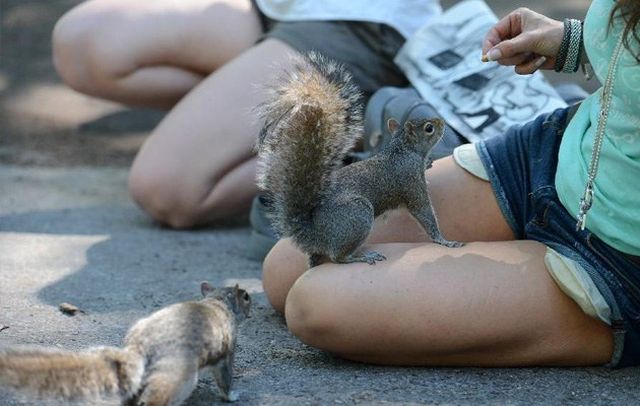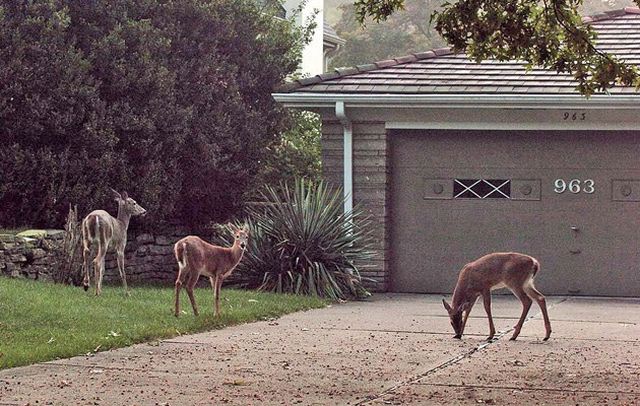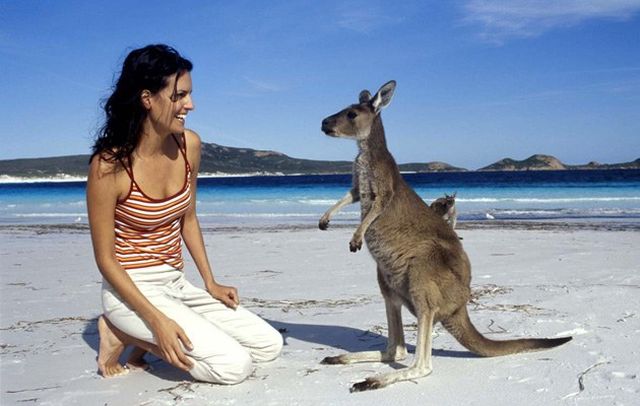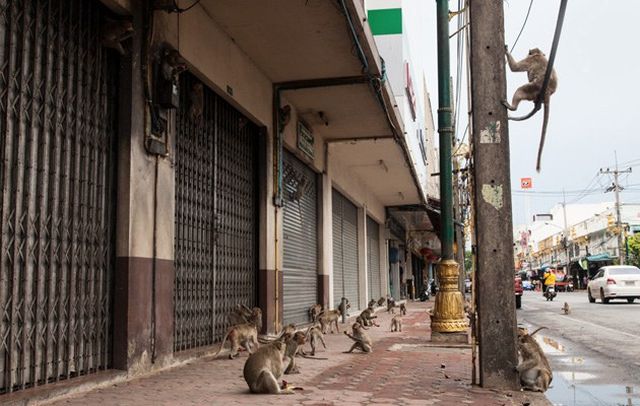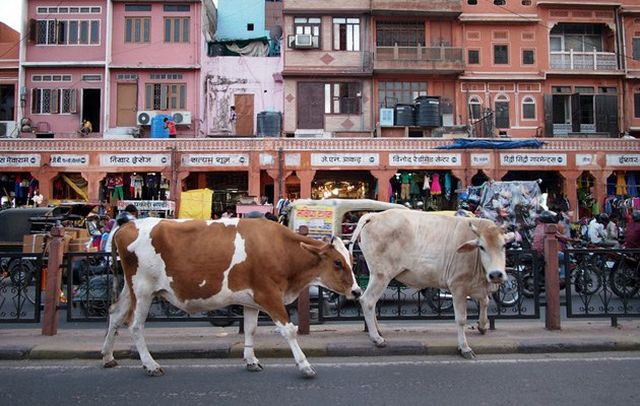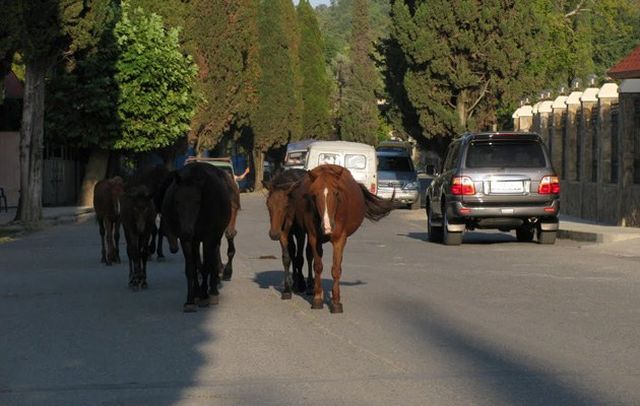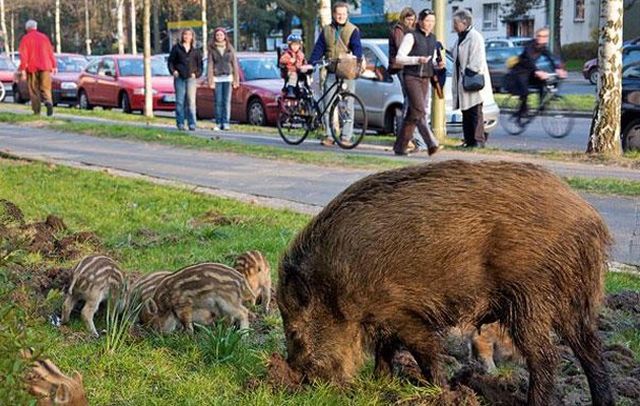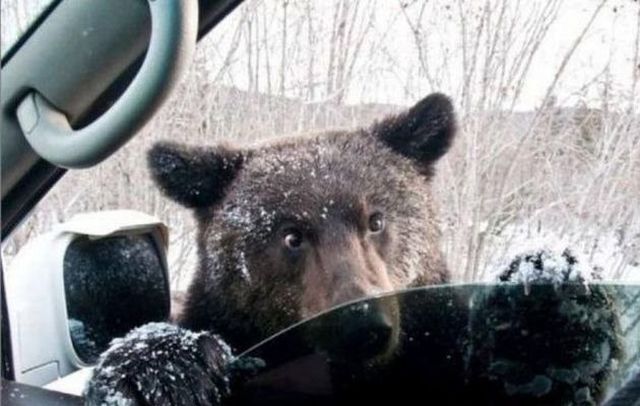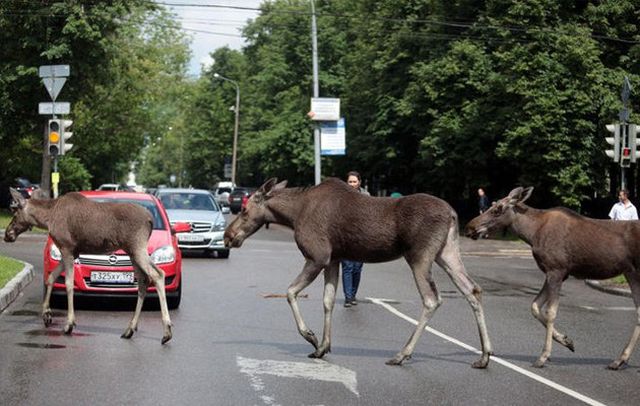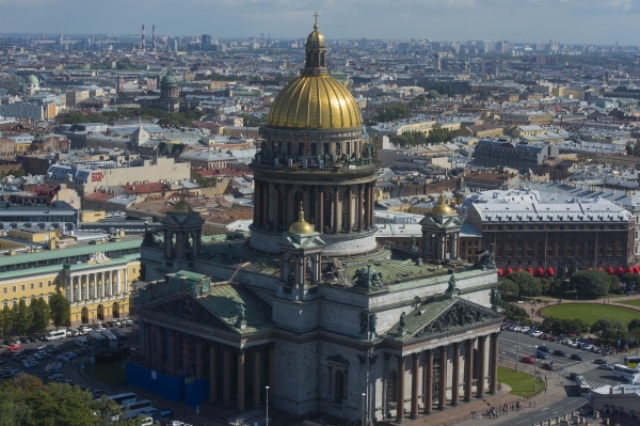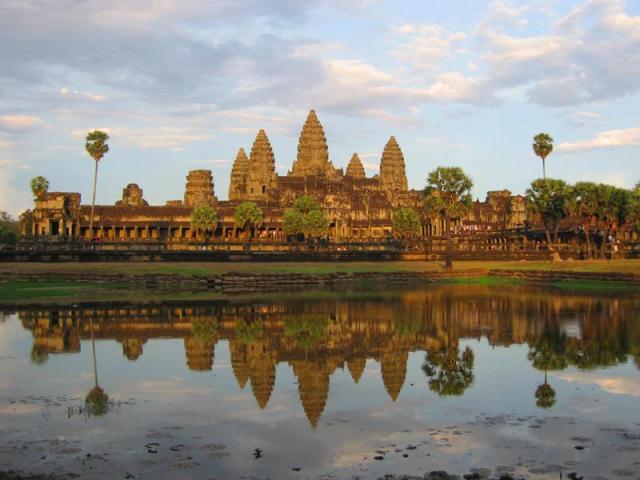Over the Hedge
Scenario famous cartoon “Over the Hedge” in some parts of the world – a dream come true. Animals are more likely to prefer the woods and fields of the city, they beckon smells of food waste and manicured lawns. Which cities can meet unusual beasts and how it coexists with people – tell “My Planet”.
U.S.: sea lions, squirrels and deer
California – sea lions
Number 39 on the pier in San Francisco for a quarter century, sea lions live. If in 1989 there were about a dozen, now a settlement has about 1500 individuals. At first, they irritate the local boaters who prevented odors and noise, but city officials sided animals have arranged them cozy rookeries of wooden planks and yachts moved to another place. As a result, remained happy and lions and tourists. Sometimes lions leave the pier, but always come back again, while remaining one of the most foul-smelling attractions of the world. There were cases when they gnawed bathers.
New York – proteins
Zoosimvol New York – hand proteins, which only within the five boroughs, there are about 40 million live in America Proteins longer than most Americans – the indigenous Indians worshiped them as sacred and untouchable animals. To close contact with small animals suitable Battery Park on the island of Manhattan: squirrels eat nuts right hands and if they are allowed, even climb down.
Pennsylvania – deer
White-tailed deer – a symbol of Pennsylvania. In the news constantly can be found in: deer smashed beer store, three deer ran onto the racetrack and frustrated racing, wild deer flew through the windshield and “rolled” on the bus.
Australia – Kangaroo
The country kangaroo these animals can be seen in the mountains or on the beaches: for example, at Cape Look At Me Now near Coffs Harbour. Low kangaroo become a big problem for drivers. Jumping on the road, they are blinded by headlights and freeze or jump at the last moment, often knocking a windshield, and even arrival to the interior of the vehicle. Local machines are usually equipped with steel bars at night in case of collision with a kangaroo.
Thailand – Monkey
Monkeys in Thailand – revered animals. According to legend, it was saved from starvation monkey Buddha, when he went into the woods from quarreling students. Especially a lot of wild monkeys around the temples, they can be found in Hua Hin Takiab on the mountain and in the nearby towns of Khao Takiab, Prachuap Khiri Khan, in the park Khao Wang in Phetchaburi. Behavior of monkeys are not always harmless: they extort food tourists and even pull it out of the hands may cling to the hair, or even steal the keys to tear the car mirror. Despite the behavior of Thais pet monkeys and even arrange them once a year feast: the festival in Lopburi in honor of the god Hanuman monkey.
India – cows
Photoshoot with cows – a mandatory part tourprogram all travelers to India. – Cows sacred animals revered in Hinduism as a mother and a symbol of abundance and purity – enjoy its advantages, choosing the best places on the beach and promenade, blocking traffic on the narrow city streets and just basking in the shade where he wants. For killing or wounding a cow in many Indian states can go to jail.
Abkhazia – cows and mustangs
Abkhazia – another country nepuganyh cows. They are eating grass on the roadside, or even graze peacefully sleeping on the roadway, looking for goodies in the trash and gracefully climb the slopes of mountains and hills. No religious background, just so convenient to residents: cow grazing all day, and at night she comes home for milking.
Another zoodikovinka Abkhazia – herds of wild horses galloping freely across the country. They can appear suddenly on the road or galloping on the beach nemnogolyudny any settlement. Summer mustangs mostly graze in the highlands, but in the off-season come closer to the sea, where the climate is milder and the grass is greener. From the people they are trying to stay away.
Berlin – wild boar, deer, foxes, rabbits, raccoons
In Berlin, in recent years there has been an invasion of wild animals such as wild boars, foxes, hares and deer migrate from the forest close to the city’s green parks and biowaste. Residents are very loyal: trying to feed the animals, pet, photograph. Initially, the police are going to shoot a wild boar, but the whole city rose to their defense, also turns out the standard bullet does not take them, but only angers. As a result, the animals quietly roam around the city, variously feed and multiply uncontrollably, and although such a neighborhood not safe, people learn to live with the animals. Most harmless animals – rabbits and raccoons. German capital raccoons considered Cassel, the total population of the country consists of up to 500,000 individuals. Scientists estimate that 43% of the population of raccoons “illegally” sleep in houses, barns or garages, as the owners are not even aware. Zoologists persistently asked not to feed or touch wild animals, and teachers teach drivers to avoid deer on the road.
Russia – bears and moose
No matter how we tried to dissuade foreigners, but on the streets of some Russian cities really can meet bears. This year saw the clumsy guests residents Zheleznogorsk (Krasnoyarsk Territory), Nizhnevartovsk, Ust-Kut, Petropavlovsk-Kamchatsky, Nakhodka. Seashore Wildlife Management Agency during the first three weeks of September, received more than a dozen posts about the appearance of citizens bears in settlements. Predators seen in many different places: on the observation platform, the stadium, in the kindergarten, at the police station, in the town cemetery, the roadway … Mass resettlement of forest aliens in towns and villages oppose Russian police and alert residents.
Moscow Elks
In Moscow and Moscow region might see elk that come from the reserve “Elk Island”. Last summer moose walked along the boulevard Izmaylovsky and previously seen them in Sokolniki. Reserve staff are asked not to lure elk and warn that “the second half of winter, more and more cases in output moose urban neighborhoods.”

